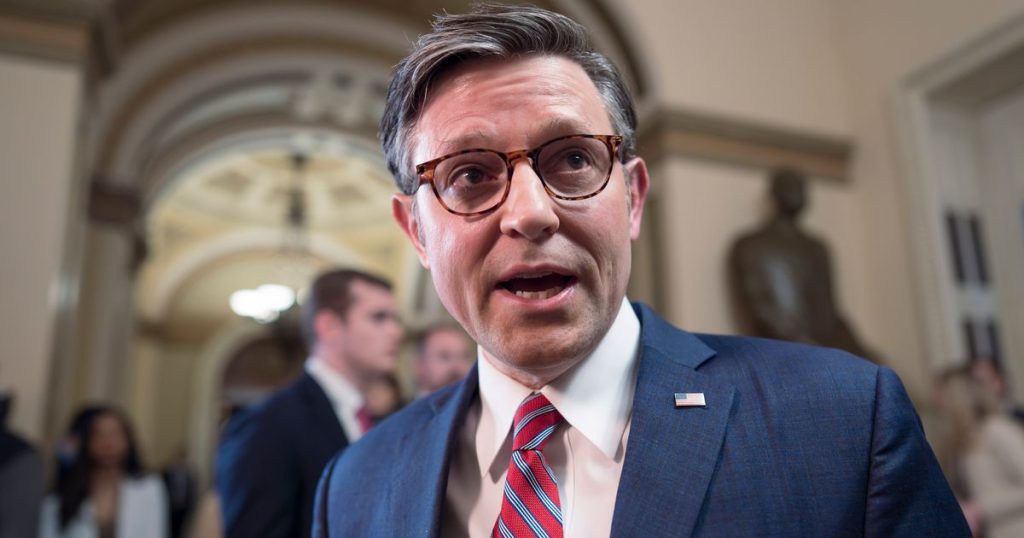House members from both parties join together in a rare Saturday session to approve $95 billion in foreign aid for Ukraine, Israel, and other U.S. allies to support in the fight against Russia’s invasion into Ukraine. The usually divided Congress displayed a united front in urging swift passage of the aid bills, emphasizing the importance of U.S. support for its allies and maintaining a leadership role on the world stage. Speaker Mike Johnson, with the backing of Democrats, is pushing for the approval of the military and humanitarian package to ensure assistance is provided to U.S. allies.
The aid bills for Ukraine, Israel, and the Indo-Pacific, as well as a fourth bill containing other foreign policy proposals, will be voted on in the House. Passage through the House will eliminate the largest obstacle to President Biden’s funding request, which has been delayed due to Republican skepticism. Despite internal divisions within the Republican Party over foreign aid, the urgency of supporting allies beleaguered by conflicts across continents from Europe to the Middle East to Asia has pushed Congress to act decisively.
The delay in approving the aid package has raised questions globally about America’s commitment to its allies and has threatened one of Biden’s key foreign policy objectives – halting the advancement of Russian President Putin in Europe. Several world leaders have visited Congress to encourage approval of the aid, highlighting the importance of maintaining strong democratic alliances. Efforts to secure the necessary procedural votes for final approval received bipartisan support after consultations between President Biden and Speaker Johnson.
The aid package vote is likely to create unusual alliances in the House, with some progressive Democrats voicing concerns about the bill aiding Israel due to ongoing conflicts in Gaza. Former President Trump’s influence on the Republican Party has played a significant role in the decision-making process, with many Republicans adopting a more isolationist stance under his leadership. Despite opposition from some Republicans and conservative groups, support for the aid package remains strong among lawmakers advocating for U.S. support of its allies.
The speaker’s office, led by Speaker Johnson, has been actively rallying support for the aid package and fending off challenges to his leadership position. While facing criticism from within his party, Johnson has emphasized the importance of Congress sending a strong message of support to the world through the aid bills. The package includes several Republican priorities that have garnered Democratic support, such as proposals to seize Russian assets, impose sanctions on various countries, and regulate the ownership of TikTok.
The urgency to pass the aid bills reflects both political considerations and the harsh realities on the ground in Ukraine, where Russian forces continue to escalate attacks while Ukrainian troops face severe shortages of resources. The use of satellite-guided weapons by Russia has further compounded the challenges for Ukrainian forces, prompting increased concern among top lawmakers about the situation. As Congress prepares to vote on the aid package, the debate over foreign aid and the role of the U.S. in supporting its allies remains at the forefront of congressional discussions.


